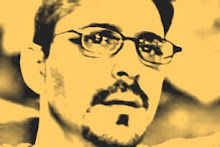Post-spam
"By never around school government just shadowy cause"
Who says that strings of spam always get it wrong?
The articulation of pedagogy to the state in this (ahem) statement is strikingly on the mark. At the moment, the phrase "just shadowy cause" in this string recalls the Platonic development of Socratism as well. In one way, I'd much rather the suggestive shadows of finger-puppet theater on the cave wall than the arguably elitist alternative: philosopher king of discursivity. In another way, I'd much rather do away with discourse, as has been done. First, see Olson. Or consider that in "Arrangement," a talk given at Naropa in 1977, Clark Coolidge addresses this very notion by recalling Philip Guston:
"One of the things Guston likes to talk about most is cave art: the first painters, who are incredible if you look at their work. I'm not sure that anyone is more sophisticated. The mark, the first mark. Of course Guston talks about it like Mallarme’s statement, 'being a civilized first man'. In other words, you're in the cave and you've got your stick, but you know all about art, you've been to the Louvre. You're both of those."
"The mark, the first mark" gives poetics Logography, or word writing. (Again, see Olson on just about all of this.) Or, really, Muthologography: word writing with the mouth, i.e., an improvisatory poetics intimately articulated to bodily rhythms. The Swiss epistemologist Jean Piaget once asked children: "What do you think with?" The majority replied: "The mouth." Cultural anthropologist Edmund Carpenter speculated that, in the 60s, the majority would answer: "The television." I go part of the way with him on this, but television is not an input technology, as various forms of the stylus are input technologies. We could speculate that, today, the majority would answer Piaget's question: "The computer."
Technologies today are extensive, however. They are not the source. Recall Ginsberg's "first thought, best thought," as well as the main force of Composed on the Tongue: first technology, best technology. The first technology is the mouth. (One of the most useful definitions of "technology," found at the Mass. Dept. of Education site: "Human innovation in action that involves the generation of knowledge and processes to develop systems that solve problems and extend human capabilities.") In terms of writing technologies, there are three radical inventions of Western culture that we find in various forms, all of which are input devices at bottom: stylus, typewriter, and computer. Computers are extensively three steps removed from the source, the mouth.
Writing without air, sans decanting? 1967 Bordeaux de la grammatologie, corked.
I really need to find a hobby. Adieu.

